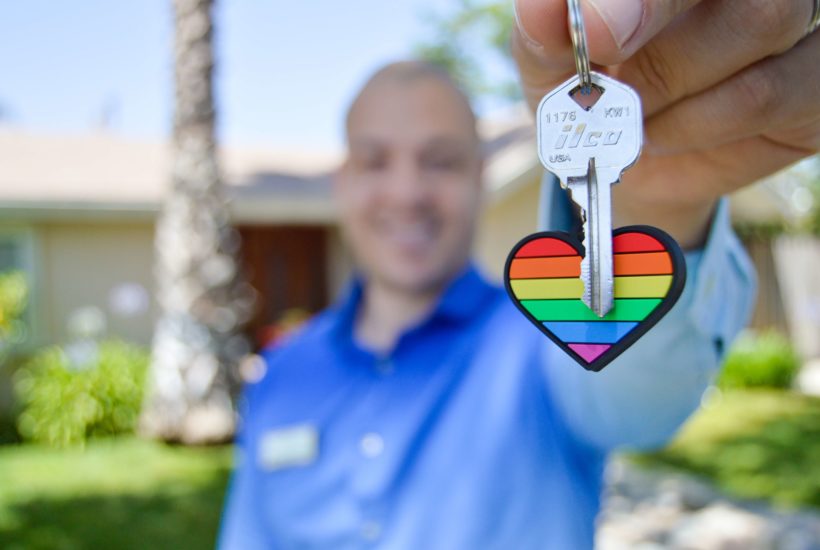Business
How to grow your real estate business with smart marketing
If you’re looking for ways you can improve your marketing game and grow your real estate business, start with these five suggestions.

Too often, I think, real estate agents and brokers are obsessed with marketing shortcuts or get-rich-quick schemes. In searching for the magic bullet, the agents will try a plan for a month or two, but if they’re not seeing success, they drop it and move on. That doesn’t give the marketing strategy enough time to gain traction, and the constant changes lead to an inconsistent message. In marketing, that’s just a recipe for disaster.
The most successful agents have mastered two or three channels that work really well. They know if a quick fix existed, everyone would use it. Sure, some success stories are out there, but they’re often misleading. When you actually dive in, you find a lot of noise but few experts who truly know their craft. If you’re looking for ways you can improve your marketing game and grow your real estate business, start with these five suggestions:
1. Don’t disregard paid media.
Running ads on Google, Facebook, and Instagram is valuable, especially if you’re a newer agent. Paid media is great for generating leads quickly. Our clients usually see leads within the first week, and we’ve achieved costs as low as $3 to $5 per lead. However, these leads still require follow-up and nurturing to be turned into clients. Jumping into this strategy can generate leads at a low cost, but it requires consistent follow-up over several months in order to see a return on investment.
2. Remember that SEO is not dead.
For people more interested in long-term return on investment, search engine optimization is still worth exploring. Leads happen organically, but it takes a lot longer to solidify results.
Lead generation through SEO is competitive, and businesses have to fight to be noticed. Google will rank a company’s relevance based on technical optimization, linkbacks, and domain authority. Having fresh content is important to keep a steady stream of potential clients coming to your site. Clicks — or the lack of clicks — are immediate feedback on how your marketing strategy resonates with viewers.
To increase your website’s chances of generating interest, focus on hyperlocal content. A blog post about the 10 best restaurants in the area or a market report performs well because they provide insights no one else had.

3. Focus on quality over quantity.
More agents are paying attention to Instagram, which makes sense given the visual appeal of real estate. Still, only 39 percent of real estate businesses use the app, and even the ones that use it often aren’t doing it well.
The most common things I’ve seen real estate agents do wrong when posting to Instagram are using low-resolution photos, failing to use hashtag research, superimposing too much text over the images, not cultivating a consistent visual identity, and not creating enough story posts.
In the real estate market, it is so important to get every detail just right. You have to know what looks good and what visually resonates with buyers and sellers. It means more than just user experience: It’s about your brand and what you communicate through your posts.
4. Let analytics be your guide.
Marketing analytics provide a plethora of data for companies, ranging from results-driven metrics to behavioral information. By analyzing your strategy’s performance, you can maximize its efficiency and improve your return on investment.
The collection of this data will allow you to see and monitor trends, determine which strategies have succeeded, and forecast results for future endeavors.
Measure and analyze the data you get from your online engagement, and let those guide your marketing strategies. Define which channels perform best, then focus on those and master them.
5. Make a plan and stick with it.
A successful marketing strategy isn’t built overnight. Almost half of real estate businesses have trouble mastering new technologies and using them as part of their overall marketing strategies.
I think a lot of agents don’t understand the effort it takes to do differentiated marketing, which is what ultimately reaps the best results. Whether you generate leads through newsletters, Instagram videos, or paid ads, it’s important to get a nurturing program in place.
The sales cycle in real estate is long, and any marketing strategies you try will take some time to show results. But by sticking with a consistent message in the long term, you’ll ultimately generate more business.
—
DISCLAIMER: This article expresses my own ideas and opinions. Any information I have shared are from sources that I believe to be reliable and accurate. I did not receive any financial compensation for writing this post, nor do I own any shares in any company I’ve mentioned. I encourage any reader to do their own diligent research first before making any investment decisions.

-

 Business6 days ago
Business6 days agoAmerica’s Debt Spiral: A $67 Trillion Reckoning Looms by 2035
-

 Crypto2 weeks ago
Crypto2 weeks agoBitcoin Reacts to Crisis: Price Swings Amid Israel-Iran Conflict
-

 Crowdfunding4 days ago
Crowdfunding4 days agoTasty Life Raises €700,000 to Expand Pedol Brand and Launch Food-Tech Innovation
-

 Biotech2 weeks ago
Biotech2 weeks agoDiscovery of ACBP Molecule Sheds Light on Fat-Burning Tissue Suppression and Metabolic Disease





















